Housewife

Brief Synopsis
Cast & Crew
Alfred E. Green
George Brent
Bette Davis
Ann Dvorak
John Halliday
Ruth Donnelly
Film Details
Technical Specs

Synopsis
Nan Reynolds works hard to run her household on her husband Bill's small salary. He is dissatisfied with his job as an office manager but is afraid to take a chance. When Bill's company hires Patricia Berkeley, a high-priced copy writer, her success stimulates Nan, who went to high school with Pat, to push Bill into asserting himself at the company. Then when Bill's boss refuses to listen to his ideas, Nan convinces Bill to start his own advertising business with money she has saved from her budget. Business is slow until Nan gets Bill drunk and he manages to land a major account. He then hires Pat and starts spending the evenings with her. When he expresses his guilt for their affair, Pat accuses him of being provincial. Nan becomes aware of the affair but decides to say nothing. Meanwhile, Paul Duprey, one of Bill's top clients, has fallen in love with Nan. He realizes that Nan is behind Bill's best ideas and compliments her in front of Bill. Although Bill wants a divorce, Nan refuses to give it to him, and he angrily leaves the house. Seeing him from a window, Bill's son Buddy runs after him and is hit by a car. Bill changes his mind about the divorce, but in the meantime, Nan has decided to go through with it. Buddy recovers and Paul proposes to Nan. She turns him down and is reunited with Bill during their divorce hearing.

Director
Alfred E. Green
Cast
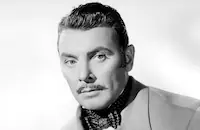
George Brent

Bette Davis

Ann Dvorak

John Halliday
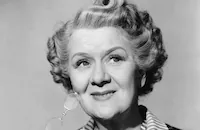
Ruth Donnelly
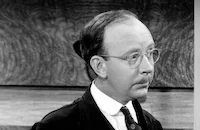
Hobart Cavanaugh

Robert Barrat

Joe Cawthorne
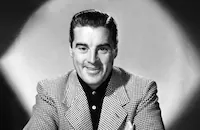
Phil Regan
Willard Robertson
Ronnie Cosby

Leila Bennett
Harry Tyler
Charles Coleman
John T. Murray
Eula Guy
Leo White
Pauline True
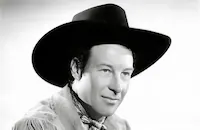
Gordon Elliot
Renee Whitney
John Hyams
Landers Stevens
Lester Dorr
Donna Mae Roberts
Perry Ivins
Art Holland
Harrison Greene
Morris Goldman
John Hale

William B. Davidson
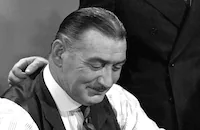
Edward Keane

Lee Phelps

Ethel Wales
Lillian Harmer
Crew
E. Burkholter
Mort Dixon
Charles Eastman
Leo F. Forbstein
Oliver Garretson
James Gibbon
Robert M. Haas
Lillie Hayward
Lillie Hayward
Mac Julian
Robert Lord
Orry-kelly
Pat Patterson
William Rees
William J. Schuck
Charles Seeling
Manuel Seff
Allie Wrubel

Videos
Movie Clip



Trailer
Film Details
Technical Specs

Articles
Housewife
Davis was less than thrilled when Warner Bros. assigned her to a supporting part in the Depression-era pre-Code melodrama Housewife in the Spring of 1934 opposite George Brent and Ann Dvorak. Davis was to play Pat Berkeley, a sophisticated copywriter whose brazen affair with advertising executive Bill Reynolds (Brent) threatens to break up his longtime marriage to Nan (Dvorak), the loyal housewife who has stuck with Bill through thick and thin.
Davis protested this new assignment by failing to show up for wardrobe fittings and other pre-filming preparations for several days. It wasn't until the studio sent numerous warnings reminding her that she was contractually obligated to make the film that Davis -begrudgingly--reported to work.
Once cameras were rolling, however, Davis made the most of the vampy part. Sporting platinum blonde hair and a chic wardrobe, she is at her most glamorous as the husband stealing career woman who gives Dvorak a run for her money competing for George Brent's affections.
Davis admitted in her 1987 memoir This 'N That that she had fallen in love with frequent co-star George Brent early in her career. Before Housewife they had already made two films together, So Big! and The Rich are Always With Us (both 1932), and afterwards they made several more including Front Page Woman (1935), Jezebel (1938), and The Old Maid (1939). However, it wasn't until 1939 when the pair co-starred in Dark Victory together, according to Davis, that Brent finally returned her affections and the two became a real-life item. "I often hoped he would want to marry me," she said. "He never did."
Housewife failed to catch fire at the box office, but by the time it was released in August 1934, Bette Davis was igniting Hollywood with her performance in a different film. Just before Housewife, Davis begged to be loaned out to RKO to play the part of Mildred, a slatternly waitress who torments Leslie Howard in Of Human Bondage (1934). It was a part no other actress wanted to touch, but Davis knew it would finally give her a chance to shine, and it did. Her raw performance in Of Human Bondage won Davis the attention and critical praise for which she had long been working, and she quickly became one of Warner Bros.' most prized and utilized assets.
By Andrea Passafiume

Housewife
Quotes
Trivia
Notes
Hollywood Reporter notes that Barbara Stanwyck and Genevieve Tobin were suggested for for the lead.















